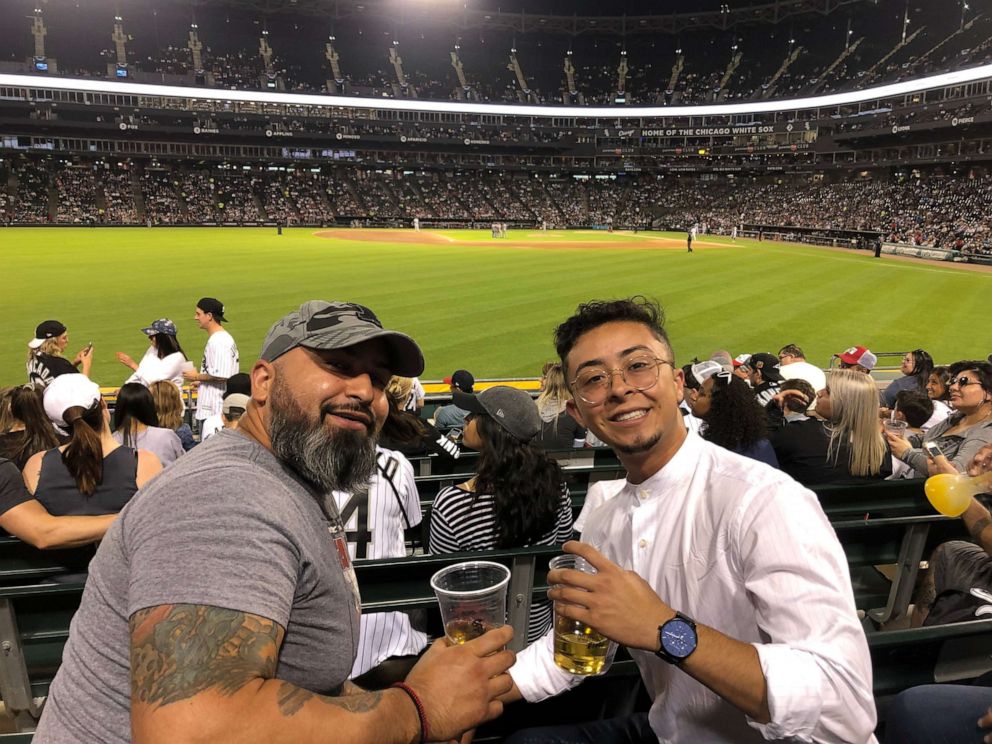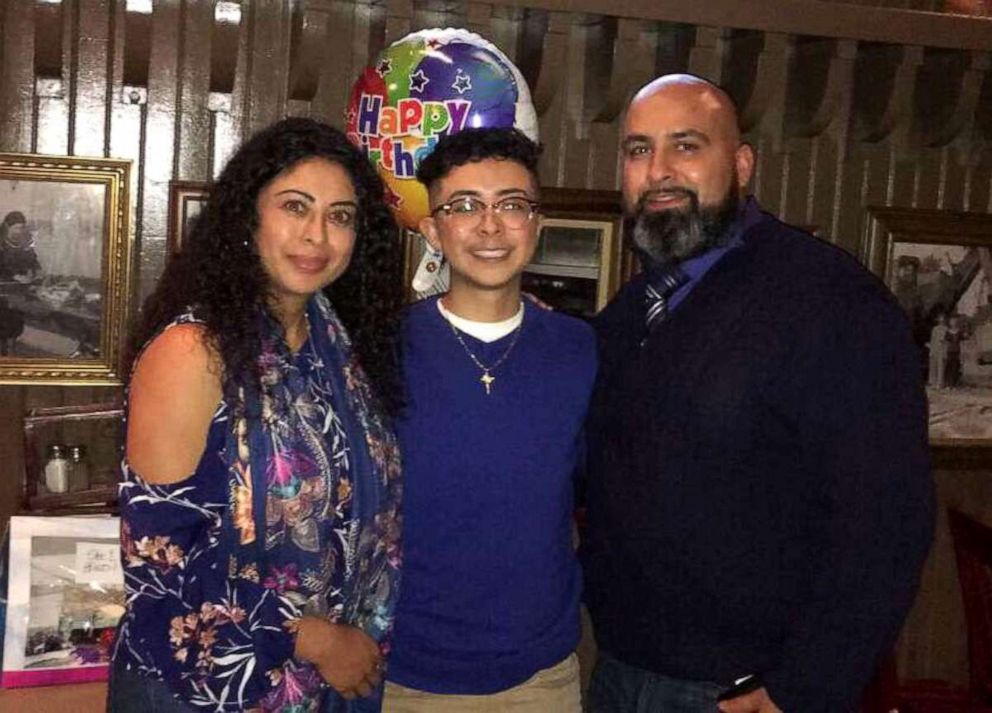More than a haircut: Father and transgender son’s heartfelt moment captures the hearts of thousands
Zeke Acosta's haircut opens a conversation about Latinx transgender people.
When Ezekiel Acosta came out as transgender to his family years ago, he had no idea that a haircut from his dad would hold so much meaning.
In a three-second video he posted to Twitter, Acosta -- also known as Zeke -- is seen getting a trim from his dad, Daniel Acosta. Zeke was preparing for a job interview the next day, and his dad stepped in with a pair of scissors to give him a fade and help him get ready.
“When I first came out as trans my parents didn’t know wtf to do with me, almost 3 years into my transition and my dad’s out here giving me a fade and trimming my beard in the backyard. If you needed a sign that things get better here it is,” Acosta wrote on Twitter accompanying the video.
The Chicago native's post garnered thousands of retweets and likes. What seemed like a little hair care was, in reality, a special moment for father and son that the internet couldn’t get enough of.
“That moment for me was not only my dad accepting me as a man, you know ... but also about, I guess, a tribute to all the men out there who, despite not having fathers growing up, became great dads,” Acosta told “Good Morning America.”
Acosta tells “GMA” that coming out to his parents, Daniel and Mayra Acosta, has been an emotional journey. Although his parents are fully supportive now, they were initially confused.
“I feel like this is a larger conversation that needs to be had because Latino families typically don’t really have the vocabulary in which to talk about ... having trans kids or having trans family members or what that even means for the family,” he said. “There’s not a lot of representation of trans men that are Latinos, so I never really felt like trans was something I could identify as.”

Acosta says his college experience helped him not only understand his identity but also granted him access to educational resources so that he could explain what he was feeling to his family.
Although it was a confusing period of time, he credits the film "Viva" on Netflix and the popular series "Pose" to helping his family understand him and his identity.
“I think different kinds of cinematic representations helped to open the conversation easier than you trying to do it individually because I know it takes a lot emotionally to even start that conversation, and exposing your family to queer culture is important.”
Acosta was surprised to see that "Pose" actually cast transgender actors, and he applauds the show for its dedication to stories about transgender women of color.
He looks up to the character Elektra, played by actress Dominique Jackson, saying that he’s inspired by how she is so comfortable in herself and is able to speak on who she is.
“I feel like a lot of times trans people are told to be quiet or told that our issues don’t matter or we’re made to feel belittled, and, you know, Elektra is just everything I would like to be,” Acosta said.
While he’s happy that many people responded positively to the video he posted to Twitter with his dad, he emphasizes that the transgender community needs a lot of support and acceptance.
Acosta said he is privileged in that he is college-educated, doing well financially and has a supportive family. But that’s not always the case for others.

According to a 2017 report by the National Center for Transgender Equality, 31% of survey respondents experienced homelessness with 14% experiencing homelessness in the year prior to the survey because of being transgender.
In the same report, 43% of Latinx respondents were living in poverty and 21% were unemployed.
The transgender community in the U.S., most specifically transgender women of color, are experiencing increased violence due to anti-transgender bias that the Human Rights Commission calls “a national epidemic.” In 2018, the HRC reported 26 deaths due to fatal violence, the majority of whom were black transgender women. In 2019 alone, there have been 16 reported violent deaths of black transgender women and two of Latinx transgender women.
“I think there’s more conversation to be had, you know, because our communities don’t really understand that there are brown trans people out there and what it means to be trans and having a conversation on that would be beneficial for future generations,” Acosta said.
His parents are happy that people can see and learn from the video he posted on Twitter. As for the fade his dad gave him, Acosta laughed and said he probably won’t let him cut it again.




